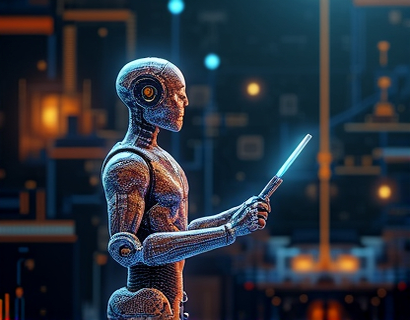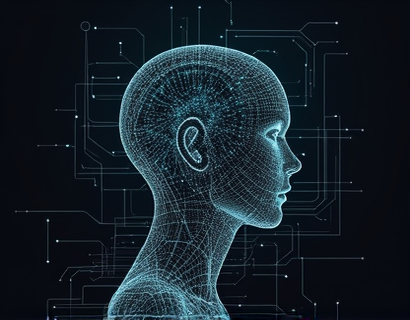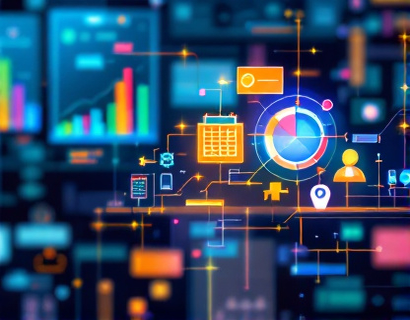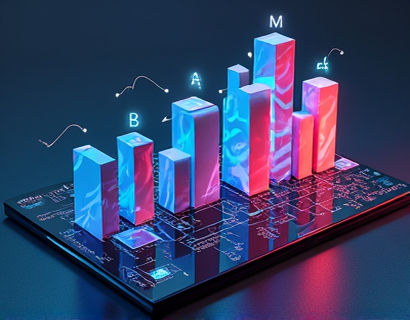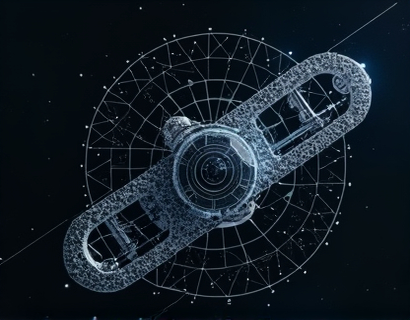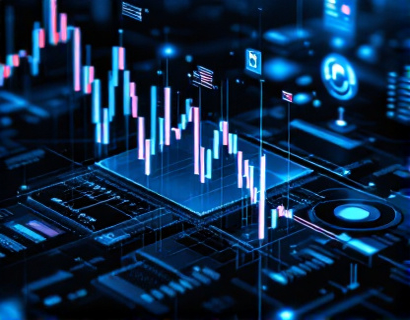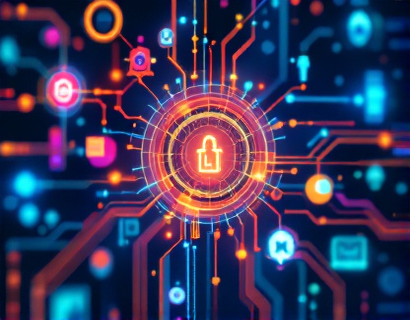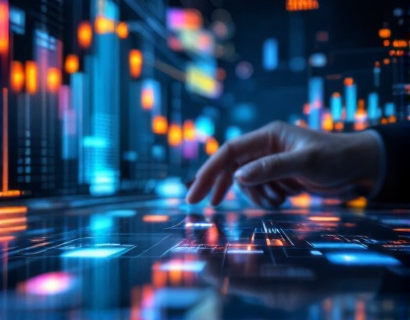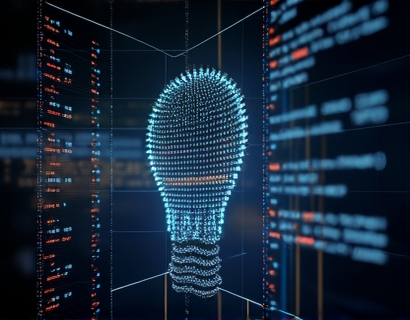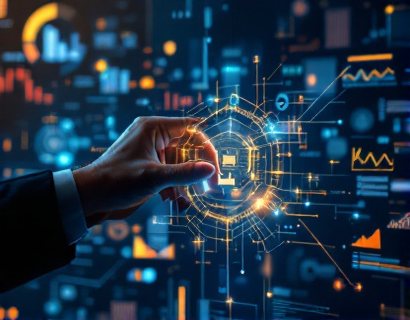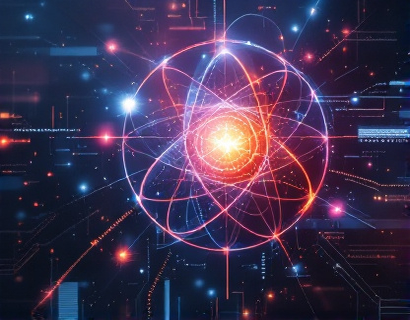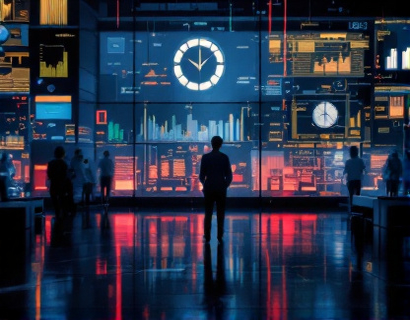Next-Gen Digital Evolution: Harnessing AI and Crypto for Advanced Ecosystem Transformation
The digital landscape is undergoing a profound transformation, driven by the powerful fusion of artificial intelligence (AI) and cryptocurrency, particularly within the blockchain ecosystem. This evolution is not just about adopting new technologies but about creating a synergistic environment where AI and crypto converge to unlock unprecedented levels of efficiency, security, and innovation. This article delves into the transformative potential of this synergy, exploring how businesses can harness these cutting-edge technologies to stay competitive in the rapidly evolving digital market.
The Synergy of AI and Blockchain
The integration of AI and blockchain represents a paradigm shift in how we approach digital systems. AI, with its ability to process and analyze vast amounts of data at unprecedented speeds, combined with blockchain's inherent transparency and security, creates a powerful toolset for modern businesses. This synergy is not merely additive but multiplicative, offering solutions that are more robust, efficient, and innovative than what either technology could achieve alone.
One of the primary areas where AI and blockchain intersect is in data management and analysis. Blockchain provides a decentralized and immutable ledger, ensuring data integrity and security. AI, on the other hand, can process this data to extract meaningful insights, predict trends, and automate decision-making processes. For instance, in supply chain management, AI can analyze data from blockchain-based transactions to optimize logistics, reduce costs, and enhance transparency.
Enhancing Business Operations
The fusion of AI and blockchain can significantly enhance business operations across various sectors. In finance, for example, AI-driven algorithms can analyze blockchain transactions to detect fraudulent activities with high accuracy. This not only improves security but also reduces the need for manual oversight, thereby lowering operational costs. Similarly, in the healthcare sector, AI can process medical records stored on a blockchain to provide personalized treatment recommendations, improving patient outcomes and operational efficiency.
Another critical area is smart contracts, which are self-executing contracts with the terms directly written into code. AI can enhance smart contracts by predicting potential issues, optimizing contract terms, and automating the execution process. This reduces the risk of human error and ensures that contracts are executed precisely as intended, fostering trust and efficiency in business transactions.
Fostering Security in the Digital Age
Security is a paramount concern in the digital era, and the combination of AI and blockchain offers robust solutions. Blockchain's decentralized nature makes it inherently resistant to single points of failure, while AI can detect and mitigate threats in real-time. For instance, AI-powered security systems can monitor blockchain networks for unusual activity patterns, identifying potential attacks before they occur. This proactive approach to security is crucial in an environment where cyber threats are becoming increasingly sophisticated.
Moreover, AI can enhance the security of blockchain itself by improving consensus mechanisms. Traditional consensus algorithms like Proof of Work (PoW) are energy-intensive and vulnerable to attacks. AI can optimize these processes, making them more efficient and secure. For example, AI-driven algorithms can dynamically adjust parameters to maintain network integrity and prevent malicious activities, ensuring the blockchain remains a reliable and secure platform for transactions.
Driving Innovation and Competitive Advantage
The convergence of AI and blockchain is not just about solving existing problems but also about creating new opportunities for innovation. Businesses that embrace this synergy can develop novel products and services that set them apart in the market. For instance, in the realm of digital identity, a combination of AI and blockchain can create secure, decentralized identity verification systems. These systems can empower individuals with control over their personal data while providing businesses with a reliable way to verify identities, reducing fraud and enhancing user trust.
In the Internet of Things (IoT) domain, AI and blockchain can work together to create a more secure and efficient ecosystem. AI can analyze data from IoT devices to optimize performance and predict maintenance needs, while blockchain ensures that data transactions are secure and tamper-proof. This integration can lead to smarter cities, more reliable industrial processes, and enhanced consumer experiences.
Challenges and Considerations
While the potential benefits are significant, there are challenges to consider when harnessing the power of AI and blockchain. One of the primary challenges is the technical complexity involved in integrating these technologies. Businesses need to invest in skilled personnel and robust infrastructure to implement and maintain these systems effectively. Additionally, regulatory frameworks are still evolving, and compliance can be a hurdle. However, these challenges are not insurmountable and can be addressed through strategic planning and collaboration with experts in the field.
Another consideration is the scalability of blockchain networks. Current blockchain technologies face limitations in transaction throughput and processing speed, which can be mitigated by AI-driven optimizations. As AI continues to advance, it can help in developing more scalable and efficient blockchain solutions, making them viable for large-scale applications.
Case Studies and Real-World Applications
Several industries are already reaping the benefits of AI and blockchain integration. In the supply chain, companies like Maersk and IBM have collaborated on a blockchain-based platform that uses AI to optimize shipping routes and reduce costs. The platform, known as TradeLens, leverages AI to analyze data from various sources, providing real-time insights and improving operational efficiency.
In the realm of finance, JPMorgan Chase has developed an AI-powered blockchain platform called CODI (Contract Digitization Initiative). This platform uses smart contracts to streamline trade finance processes, reducing the time and cost associated with traditional methods. AI algorithms analyze transaction data to ensure compliance and detect potential risks, enhancing the overall security and efficiency of the process.
In the healthcare sector, a project by Medibloc uses blockchain to create a secure and interoperable health data exchange system. AI is employed to analyze medical records and provide personalized health insights, improving patient care and operational efficiency for healthcare providers.
Future Outlook
The future of digital transformation through the fusion of AI and blockchain is promising. As technology continues to evolve, we can expect more sophisticated applications and broader adoption across industries. The development of more advanced AI algorithms and the scaling of blockchain networks will further enhance the capabilities of these technologies. Additionally, the rise of decentralized finance (DeFi) and non-fungible tokens (NFTs) is opening new avenues for innovation, driven by the combined power of AI and blockchain.
Looking ahead, the integration of AI and blockchain will likely lead to the creation of more autonomous and intelligent systems. These systems will not only optimize existing processes but also drive the development of entirely new business models and services. The key to success will be embracing this transformation, investing in the necessary infrastructure, and fostering a culture of innovation within organizations.
In conclusion, the synergy between AI and blockchain represents a transformative force in the digital landscape. By harnessing these technologies, businesses can achieve higher levels of efficiency, security, and innovation, gaining a competitive edge in the rapidly evolving market. As we move forward, the potential for groundbreaking applications and solutions is vast, making this an exciting time for tech enthusiasts and industry leaders alike.







